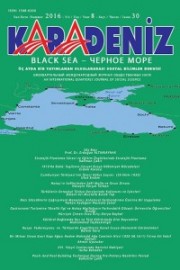A CHARACTERISING THE RELATIONSHIP BETWEEN MODERNITY AND SOCIOLOGY: THE UNDERSTANDINGS OF SECULARISATION, URBANISATION, AND SOLIDARITY
A CHARACTERISING THE RELATIONSHIP BETWEEN MODERNITY AND SOCIOLOGY: THE UNDERSTANDINGS OF SECULARISATION, URBANISATION, AND SOLIDARITY
Author(s): Barış ÇağirkanSubject(s): Politics and religion, History and theory of sociology, Evaluation research, Sociology of Culture
Published by: Kültür Ajans Tanıtım ve Organizasyon
Keywords: Modernisation; Modernity; Secularisation; Urbanisation; Solidarity;
Summary/Abstract: This paper aims to characterise the relationship between modernity and sociology in the context of secularisation, urbanisation and solidarity. The emergence of sociology as a discipline has been connected with the emergence of modernity. While modernity emphasises a different society and social structure, sociology has become the most critical part of this interpretation and its attempt to understand and explain. The study aims to explain the strong relationship between the basis of modernity and sociology by examining the work of Emile Durkheim and Max Weber which are one of the first studies to understand the new society understanding of modernism. The differences of modernity caused the social actors to be in doubt about themselves, and ontological insecurity emerged in this context. Some of the ideas have developed by sociologists about social change process will be examined in this context. Durkheim and Weber focus on the study of social order, change and social relations, which is a significant concern showing two basic methodological and theoretical ideas in the sociology tradition. Weber and Durkheim's optimistic and pessimistic attitude towards social change will be questioned in the conclusion section.
Journal: Karadeniz Uluslararası Bilimsel Dergi
- Issue Year: 2019
- Issue No: 41
- Page Range: 1-8
- Page Count: 8
- Language: English

